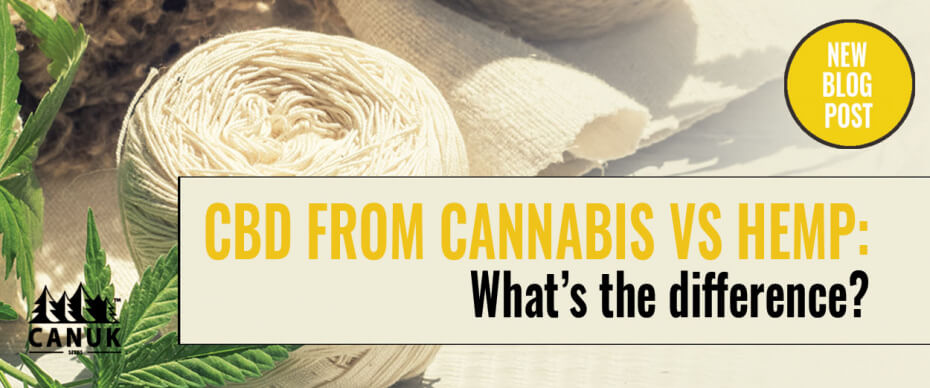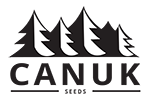
When it comes to cannabis and hemp, we have made some pretty significant leaps.
We identified the cannabinoid THC in 1964, mapped the first body-producing endocannabinoid in 1990, and significantly enhanced our understanding of the endocannabinoid system in 1992.
Today hemp is decriminalized in the U.S.
In other countries like Canada, cannabis is now federally legal both recreationally and medically.
However, there’s still some confusion surrounding cannabis and hemp.
The most significant difference between hemp and cannabis is politics and laws, which mainly boils down to THC content (sort of).
The old saying life can only be understood backwards, but it can only be lived moving forwards is pretty accurate when describing the relationship of hemp and cannabis in North America and around the globe.
If you’re using CBD, you should know the differences (and similarities) between cannabis and hemp.
Before hemp was classified as an illegal substance and made cultivating it a crime, it was once a mandatory crop in the US. Yes, mandatory. Some states made you grow it. So what changed?
Hemp does contain far less THC. Up until the last year, it was just as illegal to grow and cultivate hemp as it was to produce cannabis or bootleg spirits.
I’ve invested the hours and scoured the internet to bring you the meat n potatoes.
Let’s take a look at the relationship between the two plants, cannabinoids extracted from each plant, and why these variations should play a role in where you source your CBD.
Does it Matter Which Plant We Source CBD?
Some users claim that utilizing the whole cannabis plant is much more effective in concentrated oils and tinctures.
Legally speaking, hemp has less than 0.3% THC (0.2% in Europe), but cannabis and hemp are the same plants.
CBD derived from medical cannabis plants versus industrial hemp plants will contain CBD- no matter which plant you choose. So, does it matter where you source your CBD?
It depends on your circumstances. Where do you live? Is cannabis legal?
If not, opt for a CBD-rich oil that is a whole-plant hemp extract.
The most important (personal criteria) factors of consideration are where the hemp is grown, how it is produced, and what type of cannabinoid extracting process is being used.
Your health and safety are at risk if low-quality cultivation and extraction methods are used to manufacture the CBD product.
Herbicides, chemicals, heavy metals, and pesticides in trace amounts may be present in the finished CBD product if the hemp is not grown organically. The cannabinoids are extracted with solvents.
Not too long ago, hemp was grown for industrial purposes.
Before CBD became a thing, these crops were grown for fibres, not therapeutic benefits of cannabinoids and phytocompounds like terpenes.
Industrial hemp cultivators do not have acceptable manufacturing practices in mind, and they have zero intention of creating a premium product- buyer beware.
If you are concerned about psychoactivity or toxicity, a hemp-based CBD extraction will ensure you ingest no more than trace amounts of THC (0.3% in the U.S).
That’s why sourcing your CBD from a quality company that puts your trust and cares about your well-being before all else, the CBD product you choose will be safe, effective, and reliable.
Are Cannabis and Hemp Different Plant Species?
Correct. Cannabis and hemp are derived from the same plant genus ( cannabis) and species ( cannabis sativa).
Like other plants, both edible and floral (think: roses and tomatoes), there are differences. The biggest difference in cannabis is subtypes (also known as cultivators) of cannabis.
Cannabis cultivators are breeds of hemp and cannabis plant species cultivated for specific purposes and desired effects.
The main subtypes are growing for active cannabinoids like CBD, more hemp seeds, or industrial purposes like hemp fibres.
Plants grown for industrial purposes tend to have big stems and branches, whereas cultivators who grow for cannabinoids specifically for medical and recreational effects focus on the flowering stage.
You may be wondering which is it? Cannabis or hemp being grown in each of these subtypes.
The short answer is: either plant can be grown for any cultivation purpose, but hemp is generally produced for seeds and industrial purposes, whereas cannabis plants tend to be utilized more often for active cannabinoids.
What Makes Cannabis and Hemp Different?
After everything we’ve covered, it’s fair to say: hemp plants are cannabis plants with low THC levels. Au contraire, my friend. They also look different.
Hemp tends to grow tall and skinny with thin leaves and a minuscule number of branches with thick stems, whereas cannabis grows many leaves and grows shorter with many branches that produce sticky, pungent flower (buds).
Judging a book by its cover is pretty accurate for understanding the difference between cannabis and hemp plants.
When it comes to laws, hemp and cannabis are defined by their THC content.
In North America, you can grow hemp that contains no more than 0.3% THC present, and in the EU, cannabis plants must have 0.2% or less THC present.
Wrapping it Up
Cannabis and hemp are the same species, but they look different, produce different effects, and have different legal classifications.
Now that you’ve done your hemp homework, you’re well seasoned in understanding why it matters where your CBD originates.
While nobody likes to hang out with a know-it-all, everyone can appreciate reliable information, so feel free to share this article with anyone you know taking CBD. And remember, stay lifted!
About the author: Heather Burton
Heather lives with her husband and two children in beautiful British Columbia. Her passion has always been to enhance the lives of others by helping them reach their business goals.
Content management is her specialty, and writing is what she does best. Working specifically in the cannabis market, Heather strives to help dispensaries, patients, doctors, manufacturers and recreational users by giving them the voice they need. When she is not writing, you can find her anywhere outdoors and away from the screen.









